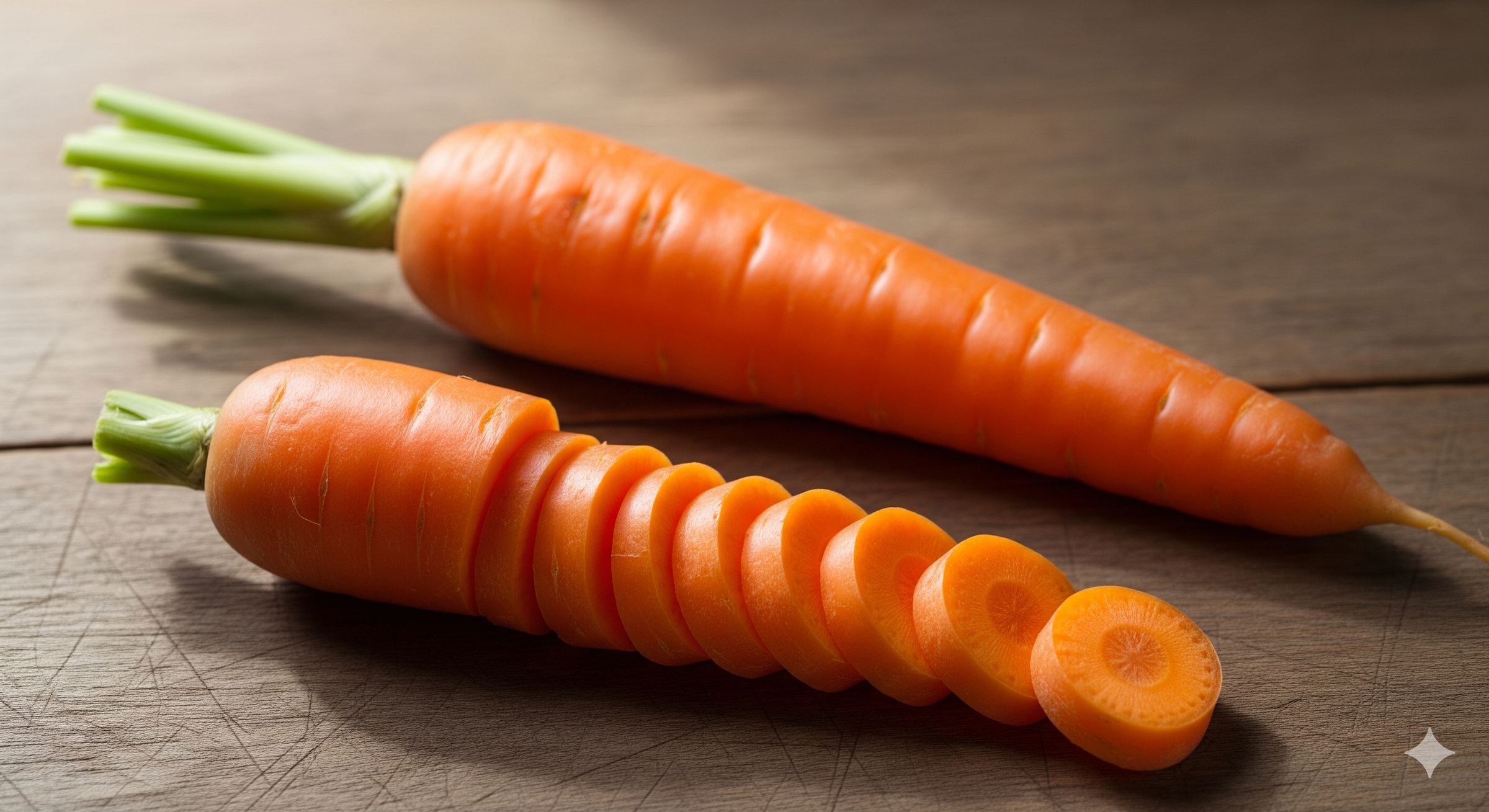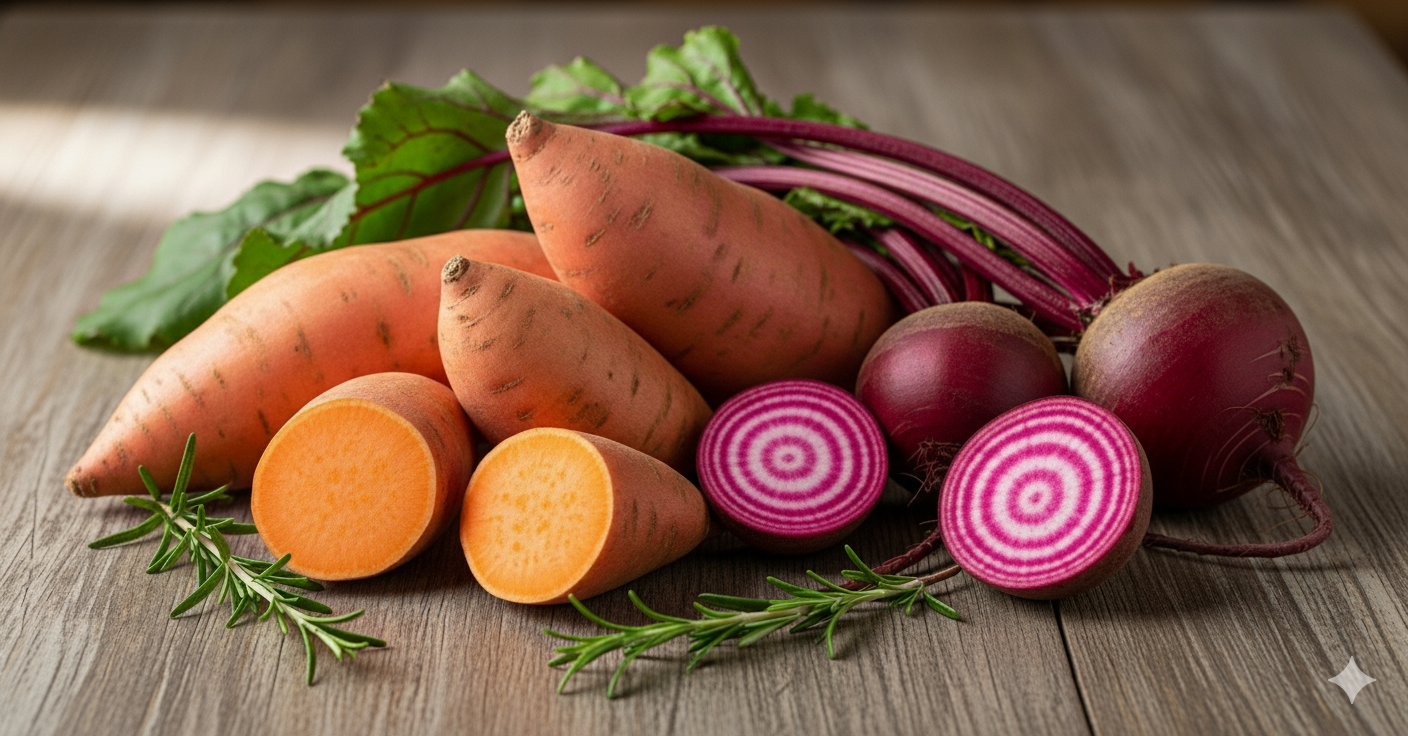Doctor Duong Minh Phuc from the High-Tech Eye Center at Tam Anh General Hospital in Ho Chi Minh City says many foods rich in vitamins and antioxidants can help protect eyesight. However, they must be consumed in the right amounts for optimal effectiveness.
Carrots are rich in beta-carotene, which the body converts into vitamin A. Vitamin A is essential for maintaining a healthy retina and good vision in low light (night vision).
Beta-carotene in carrots may also protect against age-related macular degeneration and cataracts, reducing blurriness, fatigue, and dizziness. However, adults should only consume carrots 2-3 times a week, about 100g per serving, and children 30-50g, to avoid indigestion or yellowing of the skin due to excess beta-carotene.
 |
Carrots are rich in beta-carotene, which the body converts into vitamin A, beneficial for eye health. Image generated by AI. |
Like carrots, sweet potatoes contain many nutrients important for eye health. Orange sweet potatoes (or honey sweet potatoes) are particularly rich in beta-carotene, a potent antioxidant that may prevent dry eyes and macular degeneration.
In addition to beta-carotene, sweet potatoes contain vitamins C and E, and anthocyanins (higher in purple sweet potatoes), which protect the retina and may slow down eye aging. Purple and yellow sweet potatoes also provide lutein and zeaxanthin, which may help filter harmful blue light from phones, computers, and sunlight. Excessive sweet potato consumption can cause bloating and indigestion. People with diabetes should eat them in moderation due to their high starch content.
 |
Sweet potatoes and beets both provide nutrients beneficial for the eyes. Image generated by AI. |
Beets, similar to sweet potatoes, are rich in lutein and zeaxanthin, which may protect the retina from blue light and ultraviolet rays – causes of macular degeneration. Beets are also rich in natural nitrates, which the body converts to nitric oxide, helping to dilate blood vessels and increase blood flow. This may improve circulation to the eyes, supporting retinal and visual nerve cell function. Beets also contain beta-carotene, though not as much as carrots, which is also beneficial for the eyes.
Doctor Phuc notes that curcumin, the most prominent active compound in turmeric, is beneficial for both eyes and overall health. Due to its antioxidant and anti-inflammatory properties, curcumin may help treat conditions like conjunctivitis, uveitis, glaucoma, and diabetic retinopathy, and may slow down macular degeneration. However, curcumin has poor absorption in the digestive system, so it's often combined with black pepper containing piperine to increase absorption. Excessive turmeric consumption should be avoided to prevent nausea, stomach pain, and potential liver issues.
Onions, unlike other root vegetables, don't directly improve vision but offer indirect support. They are rich in antioxidants, especially quercetin, which has anti-inflammatory effects and may reduce damage from free radicals – factors contributing to age-related macular degeneration and cataracts. Quercetin may also improve blood circulation, providing oxygen and nutrients to the eyes, particularly the retina.
Onion extract may prevent mild eye infections but should never be applied directly to the eyes, as it can cause irritation and even burns. Doctor Phuc recommends combining onions with foods rich in vitamin A, lutein, and zeaxanthin, such as carrots, leafy greens, salmon, and eggs, to enhance eye protection.
Nhat Minh
| Readers can submit questions about eye diseases here for doctor's answers. |












